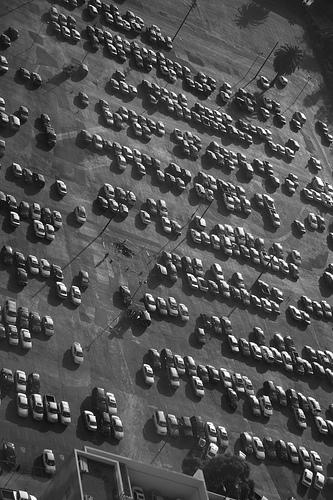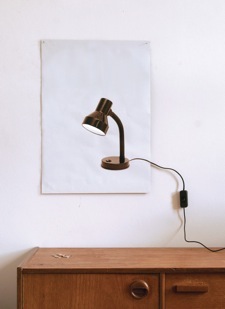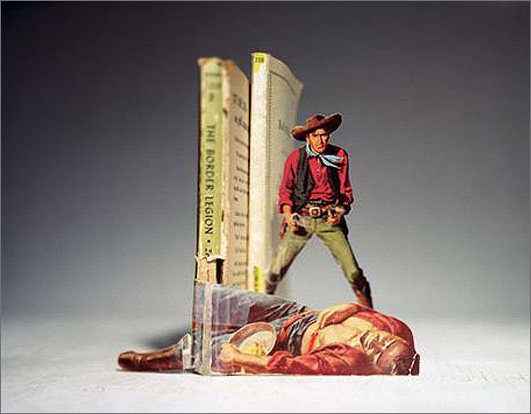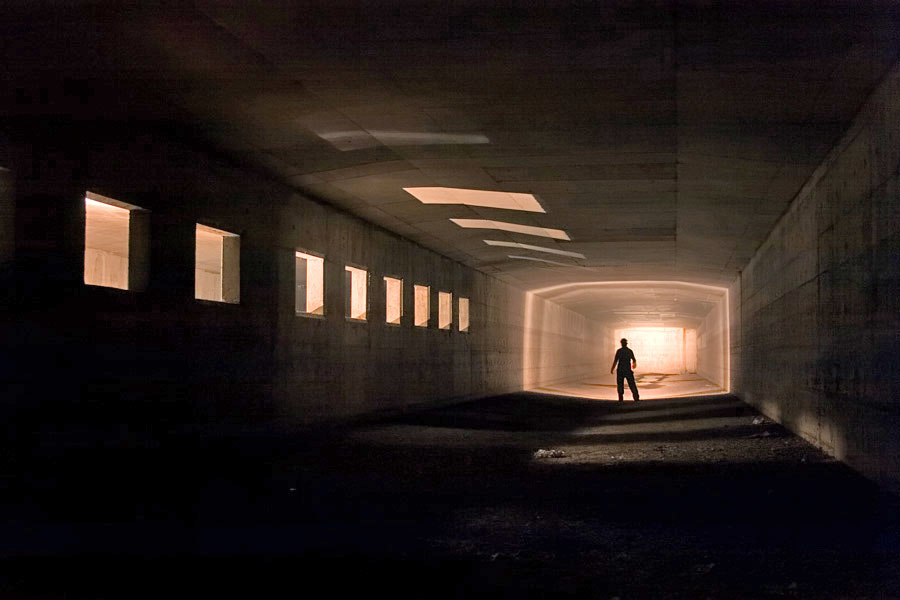The Blow-Up: MIT Tech Review on the Quant Meltdown
CDOs had functioned as the collateral on the quants’ short positions. When the subprime crunch squeezed the financial markets, the value of those CDOs declined, forcing quants to increase the collateral in margin accounts, buy back the shorted stocks, or both. But in either case, in order to supplement their shrinking collateral, quant funds were forced to sell strong blue-chip stocks, whose prices consequently fell. At the same time, as quants bought back shorted stocks, the prices of those stocks increased, demanding the posting of yet more collateral to margin accounts at the very time that the value of CDOs was suffering. That the quants were, apparently, long on the same strong stocks and short on the same weak stocks was a result of a number of strategies, pairs trading among them.
Sugar's got what it takes (1965)
Via Monoscope, best commentary at BoingBoing, via Vintage Ads’ stolen from FlamingText.
Eric Clapton shreds
Via Bacon and Monty Phan at Wired News. See the news story for context if you don't get it.
A Vision of Students Today
A short video summarizing some of the most important characteristics of students today - how they learn, what they need to learn, their goals, hopes, dreams, what their lives will be like, and what kinds of changes they will experience in their lifetime. Created by Michael Wesch in collaboration with 200 students at Kansas State University.
Via peterme.com.
When I Sold My Soul to the Machine
Some excerpts from "When I Sold My Soul to the Machine" a documentary on the dutch electro/techno scene around Bunker Records in The Hague during the 90's
part 1
part 2
part 3
part 4
part 5
See also Slices dvdmag on Legowelt and Guy Tavares:
part 1
part 2
Via Leyburn at someplace special.
Pop Lock and Drop It
Some hick gets his hands on a Rock-afire Explosion kit, and programs it to perform Huey - Pop, Lock, and Drop It.
For more check his other videos particularly Programming details, or those of fechter1.
Andy Beckett walks along the 11-mile blue fence that cordons off the 2012 Olympics site in London
The recent history of London, like that of Britain’s other smartened-up cities, is full of such uprootings. The cleansing of the Lea Valley follows that of Covent Garden in the 70s and 80s, Docklands in the 80s and 90s, King’s Cross between the 90s and now. Steadily, the ragged holes in the city’s fabric are being stitched up. It is hard to deny that some benefits - economic, architectural, for consumers - have come with this. But Dettmers, who arrived in London from Germany in 1981, is increasingly alarmed: “Cities need to have holes in them,” she says. “Places where they can breathe - valves where the unexpected can be let out.”
Via cityofsound.
Drains of Canada: An Interview with Michael Cook
Via Monoscope.
Even people I know who self-identify as urban explorers aren’t at all that interested in undergrounding – especially not in storm drains. A lot of them just don’t see the actual interest. It’s not a detail-rich environment. You can walk six kilometers underground through nearly featureless pipe – and there’s not something to see and photograph every five feet.
On the Edge: Derek Bailey
Via cityofsound.
On the Edge: Derek Bailey [U B U W E B]
A series of four 55 minute films shown on Channel 4 TV in the UK in early 1992. To say this was the best and most intelligent analysis of improvisation to be screened on UK television is probably unnecessary.
What would your urban utopia look like?
Via Beyond the Beyond Adam Greenfield’s Urban Utopia.
- A zone or zones with the density, skyscraping verticality and walkability of Manhattan, or maybe central Hong Kong, for identity, legibility, and let’s face it, excitement;
- Flabbergasting ethnolinguistic diversity, with all that implies for the eating experience;
- Lots of mixed-use close in to the core, and lower-density, more purely residential outlying districts with the easygoingness, human scale and hardy housing stock I remember from my adolescence in West Philadelphia;
- These connected to the downtown(s) and to each other by something like the vividly multimodal transitscape of central Amsterdam, where a road, a sidewalk and a bustling bikepath will all converge in crossing over a canal (and I’d thrown in Portland’s light-rail network);
- Enough cheap housing so that everyone who wants one has a room to call their own - and enough cheap warehouse/event space to support an arts community like Berlin’s;
Sounds good to me.
3D Logic and Bloxorz
Via John Gruber at Daring Fireball I found two good puzzle games:
3D Logic and Bloxorz
John Lennon's jukebox
Via Paul Kedrosky’s Infectious Greed.
The story of John Lennon’s jukebox and his 40 favorite songs therein
Iraqi Kurdistan: Does independence beckon?
Posted to Economist.com.
If they are sensible, the Kurds will not rush towards independence. To be landlocked and without permanently friendly neighbours is a pretty hopeless recipe for statehood. The outside powers on which the Kurds ultimately depend, especially Turkey and the United States, would not allow them to break away. The Turks could throttle them economically if not bash them militarily; the Americans may well turn their backs, reckoning that it is strategically more important to curry favour with Turks and Arabs.
Forget the film, watch the titles
Via cityofsound.
Forget the film, watch the titles
Cracking site showing great film title sequences, animation etc. [via Chris Jones]
Under the Veil
Posted by Eugene Volokh to Volokh.
I have a piece on the subject in National Review Online this morning. Here’s the introduction:
Recent years have seen a set of requests by Muslims for exemptions from generally applicable laws and work rules. A Muslim policewoman in Philadelphia, for instance, asked for an exemption from police-uniform rules so that she could wear a Muslim headdress. A few years ago, a Muslim woman in Florida asked that she be allowed to wear a veil in a driver’s license photo. Last year, a Muslim woman in Michigan asked that she be allowed to testify veiled in a small-claims case that she brought.
All these claims were rejected by courts, and likely correctly, though the arguments for the rejection are not open-and-shut. But some of the public reaction I’ve seen to the claims suggests that people are seeing such claims as some sort of special demands by Muslims for special treatment beyond what is given Christians, Jews, and others. And that turns out not to be quite so: While the claims are for religious exemptions for Muslims, they are brought under general religious-exemption statutes that were designed for all religions and that have historically benefited mostly Christians (since there are so many Christians in America).
The Muslim exemption claims are plausible attempts to invoke established American religious-exemption law, and they deserve to be treated as such – even if there are good reasons for rejecting them, as American religious-exemption law recognizes. Let us briefly review this law, so that this becomes clearer….




